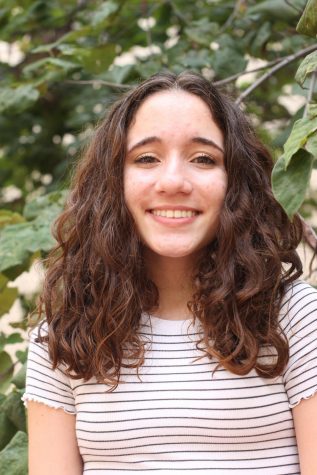My twin sister and I have one obvious difference between us — she has brown skin, while mine is white. Besides that, we are extremely similar, short with matching brown eyes and thick brown hair. However, we have been treated differently because of our skin color ever since we were little.
I’ve been told that ever since we were young, our nana seemed to gravitate towards me, the baby that looked like her, and because of my pale skin she called me her “porcelain doll.” My sister, Abby, was never given a nickname.
Abby and I, of course, didn’t notice anything was off then. We were still blessed with ignorance, unaware of the harsh reality of racism. As we grew older, however, the little differences began to add up.
• • •
My sister and I ran onto our aunt’s porch, overflowing with the childhood giddiness of seeing our extended family. We were always ecstatic to go to her house, where we would get to see the family that lives four hours away from us, play with her cats and sleep on an air mattress. When we saw Nana, she welcomed me first with a huge hug and a smile, commenting about how much I’ve grown, how pretty I looked. Abby stood behind me, unacknowledged. After a few minutes of cooing over me, she gave Abby a small side hug and a quick “hello.”
• • •
Abby’s light brown skin resembles a stereotypical Middle Eastern girl, reflecting our mother’s Persian ethnicity, while I have pale skin associated with our European father.
This made her different than the rest of our white family. Superficially, we look like we could come from opposite sides of the globe, but genetically, we are nearly identical.
Out of curiosity, we took a DNA test. As we sent off the results, my mom joked about how great it would be if I was genetically as Persian or more than my twin sister. How ironic it would be if the white and the brown sisters had the same Middle Eastern blood.
When the results came back, my mother’s hopes were realized. I am 49 percent Persian, while Abby is only 38 percent.
However, this goes unseen, and my sister and I are treated differently based off of what is visible to the naked eye.
Unfortunately, this kind of prejudice isn’t specific to my family. It’s seen all over the world, even in places where brown skin is more common.
Driven by the idea that you must have a pale complexion, people douse themselves in skin lightening creams and lotions that can be filled with harmful chemicals and toxins. They often ignore these consequences, determined to be accepted into society.
While skin lightening might not be as common in America, people with colored skin still face the skewed idea of society that you must be white to be pretty. Even though segregation due to race has been illegal in America for years, it hasn’t changed the mindset of those who discriminate. It just made the barriers separating us invisible.
As I’ve gotten older, the differences in the way I and my sister are treated have become more obvious, and it’s hard to tolerate. I have more of what some people hate about my sister — our Persian ethnicity — within me but I don’t experience any racism just because it can’t be seen.
I struggle with understanding how the color of somebody’s skin could make them appear as less of a family member or of lower worth.
My sister is just as much of a person and part of my family as I am, and she deserves to be treated like it.








